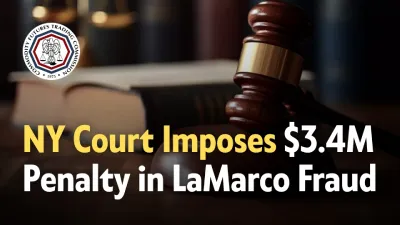简体中文
繁體中文
English
Pусский
日本語
ภาษาไทย
Tiếng Việt
Bahasa Indonesia
Español
हिन्दी
Filippiiniläinen
Français
Deutsch
Português
Türkçe
한국어
العربية
The Growing Threat of Fake Emails and Phishing Scams
Abstract:Fake emails and phishing scams are on the rise in crypto, targeting users with fraudulent wallet setup instructions. Stay vigilant and protect your assets.

The crypto community has been increasingly targeted by fraudulent emails posing as major crypto exchanges, tricking users into creating wallets with pre-generated recovery phrases controlled by scammers.
Social engineering attacks are also on the rise; hackers have recently infiltrated Kaito AIs social media accounts to influence token prices, and malicious spoof Zoom calls have targeted cryptocurrency founders.
In addition, physical attacks and high-profile security breaches are becoming more common. Kaito AI and its creator, Yu Hu, were victims of a social media hack where attackers took control of the project's X account and spread false information. They falsely claimed that users' funds were at risk and that Kaito wallets had been compromised.

On-chain investigator DeFi Warhol revealed that the hackers had previously set a short position on KAITO tokens, indicating the posts were part of a larger plan to manipulate the price. Their goal was to cause panic selling, crashing the token's value to profit from the market drop.
Phishing scams targeting users of popular exchanges like Coinbase and Gemini have also increased. Cybercriminals are sending emails disguised as official communications from these platforms, advising users to switch to self-custodial wallets. The emails include pre-generated recovery phrases, which scammers control, alongside instructions to download legitimate wallet services. Once users create wallets using these phrases and transfer their assets, scammers can steal the funds.
Coinbase has issued a warning to users, urging them not to trust pre-generated recovery phrases and reminding them that the platform will never send such messages. Stay alert and cautious to protect your digital assets from these rising threats.

Disclaimer:
The views in this article only represent the author's personal views, and do not constitute investment advice on this platform. This platform does not guarantee the accuracy, completeness and timeliness of the information in the article, and will not be liable for any loss caused by the use of or reliance on the information in the article.
Read more

Planning to Invest in Trade245? Read These Negative Trader Reviews First!
Setting your sights on Trade245? Think again! Traders are witnessing massive problems that extend beyond withdrawal denials. The issues include blown-up accounts due to trading manipulation, along with high spreads and commissions. As a result, traders witness only losses even when they are not supposed to. This has made the situation highly complicated for them. In this article, we have exposed Trade245 for its financially illicit acts. Read on!

Zerodha Scam: Investor Loses ₹3.5 Lakh ! Spot the Red Flags & Protect Yourself
Indian investor Maryam Khan, 35, was scammed out of nearly ₹35 Lakh in a fraudulent stock investment scheme orchestrated by individuals impersonating the legitimate financial firm Zerodha. The scam began when Khan came across a Facebook Reel on July 4 promoting fake investment opportunities. After contacting the WhatsApp number listed in the ad,

Scam Alert: GTS Caught in Major Trading Fraud
Have you been deceived by GTS officials? Has this forex broker prevented you from withdrawing funds? Unfortunately, you have been scammed! File a complaint with the authorities soon to recover your funds. Many have accused this forex broker of serious fraud allegations on several broker review platforms. Our WikiFX team found a massive number of trader complaints against this broker. In this article, we will share them with you.

New York Court Finalizes $3.4M Penalty in LaMarco Forex Fraud
Federal court finalizes $3.4M penalty and lifetime ban in Daniel Winston LaMarco Ponzi-style forex case; CFTC highlights investor protection and enforcement.
WikiFX Broker
Latest News
Datuk Seri Linked to RM8.4 Million Gold Investment Scam Under Police Probe
The Psychology Behind the Ascending Triangle Pattern in Forex
Charles Schwab Forex Review 2025: What Traders Should Know
The Global Inflation Outlook
What WikiFX Found When It Looked Into XS
ASIC Regulated Forex Brokers: A Comprehensive 2025 Guide
Is TradeEU Reliable in 2025?
Professional Forex Trading: Skills, Tools, & Strategies for Success
Investing in OnFin? Absurd Withdrawal Conditions & Trade Manipulation May Spoil Your Trading Mood
How Commodity Prices Affect Forex Correlation Charts
Currency Calculator


